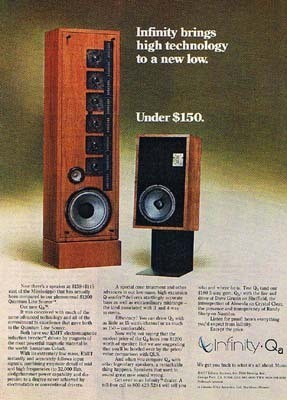I will re-post some sentences I posted in another thread, they fit better here.
Perhaps if we would first debate on what were the real improvements we would arrive somewhere.
IMHO, the great improvement in audio has been in a successive removing of the euphoric layers, keeping the musicality of sound reproduction. Most of the time, accurate sound resulted in a dry, non involving sound. We have today great equipment that manages to have a good balance between accurate and musical. High-end took a major part in this task.
The debate is not easy. Proper research should be carried reading or listening to existing recorded documentation and analyzing it . Unhappily all existing records are a mix of technical achievements and marketing and it is not easy to separate what was cause and what was consequence. And remember that may consumer brands, such as Sony, Pioneer, Denon and Onkyo, had high-end lines in their mother-land, that were not exported to foreign markets - the audio world does not end at the US border. They use this lines to develop many concepts that later entered consumer electronics.
You're welcome to start that thread, Micro, but here, I'm interested in clear technological breakthroughs that went on to become ubiquitous, impacting the broad world of CE. Gary's first useable class D amp is a great example. We know it was a breakthrough. We know who invented it. We know it has benefited CE broadly.
Tim








